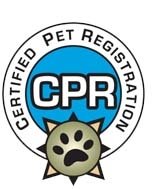Puppy Vaccination Schedule
A possible vaccination schedule for the 'average' puppy is shown below.
| Puppy Vaccination Schedule | |
|---|---|
| Age | Vaccination |
| 5 weeks | Parvovirus: for puppies at high risk of exposure to parvo, some veterinarians recommend vaccinating at 5 weeks. Check with your veterinarian. |
| 6 weeks | Combination vaccine* without leptospirosis. Coronavirus: where coronavirus is a concern. |
| 9 weeks or older | Combination vaccine* without leptospirosis. Coronavirus: where coronavirus is a concern. |
| 12 weeks** | Combination vaccine Leptospirosis: include leptosporosis in the combination vaccine where leptospirosis is a concern, or if traveling to an area where it occurs. Coronavirus: where coronavirus is a concern. Lyme: where Lyme disease is a concern or if traveling to an area where it occurs. |
| Adult (boosters)§ | Combination vaccine Leptospirosis: include leptospirosis in the combination vaccine where leptospirosis is a concern, or if traveling to an area where it occurs. Coronavirus: where coronavirus is a concern. Lyme: where Lyme disease is a concern or if traveling to an area where it occurs. Rabies: Given by your local veterinarian (time interval between vaccinations may vary according to local law). |
| *A combination vaccine, often called a 5-way vaccine, usually includes adenovirus cough and hepatitis, distemper, parainfluenza, and parvovirus. Some combination vaccines may also include leptospirosis (7-way vaccines) and/or coronavirus. The inclusion of either canine adenovirus-1 or adenovirus-2 in a vaccine will protect against both adenovirus cough and hepatitis; adenovirus-2 is highly preferred.
**Some puppies may need additional vaccinations against parvovirus after 15 weeks of age. Consult with your local veterinarian. § According to the American Veterinary Medical Association, dogs at low risk of disease exposure may not need to be boostered yearly for most diseases. Consult with your local veterinarian to determine the appropriate vaccination schedule for your dog. Remember, recommendations vary depending on the age, breed, and health status of the dog, the potential of the dog to be exposed to the disease, the type of vaccine, whether the dog is used for breeding, and the geographical area where the dog lives or may visit. Bordetella and parainfluenza: For complete canine cough protection, we recommend Intra-Trac III ADT. For dogs that are shown, in field trials, or are boarded, we recommend vaccination every six months with Intra-Trac III ADT. |
|
Vaccine dose
 It is NOT true that a small breed of puppy should receive a smaller vaccine dose than puppies of larger breeds. All puppies regardless of age, body weight, breed, and gender are given the same vaccine dose. Vaccines are generally administered in one milliliter (cc) doses. Simply follow the manufacturer's recommendations. To administer a lesser vaccine amount than recommended will likely result in insufficient immunity.
It is NOT true that a small breed of puppy should receive a smaller vaccine dose than puppies of larger breeds. All puppies regardless of age, body weight, breed, and gender are given the same vaccine dose. Vaccines are generally administered in one milliliter (cc) doses. Simply follow the manufacturer's recommendations. To administer a lesser vaccine amount than recommended will likely result in insufficient immunity.
Time to produce protection
Vaccines do not stimulate immunity immediately after they are administered. Once a vaccine is administered, the antigens must be recognized, responded to, and remembered by the immune system. In most puppies, disease protection does not begin until five days post vaccination. Full protection from a vaccine usually takes up to fourteen days. In some instances, two or more vaccinations several weeks apart must be given to achieve protection. In general, modified live vaccines and those vaccines administered intranasally provide the fastest protection.
Why do some vaccinated animals still get the disease?
It is a fact that in the USA today, literally hundreds and perhaps thousands of vaccinated dogs and cats are still contracting the diseases they were vaccinated against. Some term this vaccine failure although it is more likely a failure of the immune system to respond than a problem with the vaccine itself.
Parvovirus is a serious case in point. How can a puppy get the disease and possibly die if it was vaccinated? Unfortunately, for some reason the vaccine did not stimulate the immune system enough to protect the puppy from disease. The reason may be interfering maternal antibodies, the vaccines themselves, the dog's own immune system, or genetics. By far, the most common reason in puppies is interfering maternal antibodies.



